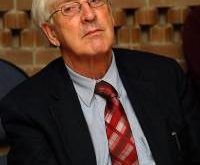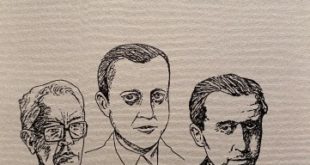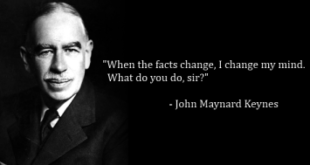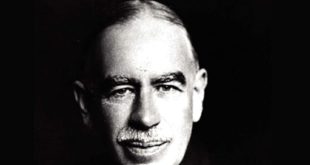Jon Elster and the dangers of excessive ambitions .[embedded content] Most mainstream economists want to explain social phenomena, structures and patterns, based on the assumption that the agents are acting in an optimizing — rational — way to satisfy given, stable and well-defined goals. The procedure is analytical. The whole is broken down into its constituent parts to be able to explain (reduce) the aggregate (macro) as the result of the interaction of...
Read More »Mainstream medieval inflation medicine
Mainstream medieval inflation medicine Inflation peaked back in June 2022, only three months after the Fed started hiking interest rates. At that time, the Fed’s policy rate had risen just 75 basis points, and no one knew how much higher it might go. In fact, we have no evidence that monetary policy had any significant effect on the course taken by prices – certainly not before the June 2022 turning point, and not thereafter, either. In modern medicine, a...
Read More »Sraffian economics — a critique
Sraffian economics — a critique After being tasked with editing David Ricardo’s Collected Works in 1930, Piero Sraffa, with the assistance of Maurice Dobb, published them between 1951 and 1973. This work earned him the 1961 Söderström Gold Medal from The Royal Swedish Academy of Sciences. For the edition, Sraffa wrote an interesting and thought-provoking introduction. Its purpose was to demonstrate that classical economists based their theory on the concept...
Read More »Swedish institutionalism
In recent times, there has been a growing interest in institutionalist trends and research within economics. Traditional explanations and analyses have seemed to have little or no value. Abstract and unrealistic theories have increasingly been replaced by historically grounded ones. Institutional and structural elements in the economy are highlighted, replacing overly short-term and model-based variables. It is, therefore, not surprising that economists have become interested...
Read More »Why you shouldn’t day trade!
Why you shouldn’t day trade! .[embedded content]
Read More »How to become a Keynesian
How to become a Keynesian Until [2008], when the banking industry came crashing down and depression loomed for the first time in my lifetime, I had never thought to read The General Theory of Employment, Interest, and Money, despite my interest in economics … I had heard that it was a very difficult book and that the book had been refuted by Milton Friedman, though he admired Keynes’s earlier work on monetarism. I would not have been surprised by, or...
Read More »The necessity of economic pluralism
The necessity of economic pluralism .[embedded content]
Read More »The Ricardian vice
The completeness of the Ricardian victory is something of a curiosity and a mystery. It must have been due to a complex of suitabilities in the doctrine to the environment into which it was projected. That it reached conclusions quite different from what the ordinary uninstructed person would expect, added, I suppose, to its intellectual prestige. That its teaching, translated into practice, was austere and often unpalatable, lent it virtue. That it was adapted to carry a vast...
Read More »The money multiplier — neat, plausible, and utterly wrong
The money multiplier — neat, plausible, and utterly wrong The mainstream textbook concept of money multiplier assumes that banks automatically expand the credit money supply to a multiple of their aggregate reserves. If the required currency-deposit reserve ratio is 5%, the money supply should be about twenty times larger than the aggregate reserves of banks. In this way, the money multiplier concept assumes that the central bank controls the money supply...
Read More »Ekonomins kvinnliga revolutionärer
Apokalypsens fyra ryttare är här – för att dra ned brallorna på de neoklassiska ekonomerna. I det tysta pågår en revolution inom det ekonomiska fältet, och längst fram på barrikaderna står en grupp kvinnliga forskare. Det kan vara svårt att känna hopp när både höstens och den reaktionära samtidens mörker lägger sig över oss. Därför vill jag lyfta något som ger mig politiskt d-vitamin. Det handlar om en pågående ekonomisk-politisk revolution, som leds av fyra stencoola...
Read More » Heterodox
Heterodox







